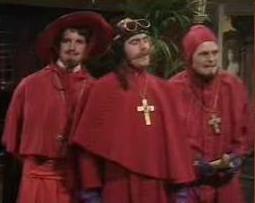Guestr despatch by Tom Chance
My fringe session on free software and data went well last night, we discussed the issues, possible policy and campaigns on what is a pretty niche subject. My cause was helped by the organisers using OpenStreetMap's coverage in the conference pack to show people how to get around - a nice treat for me since I helped map this area!
I started out by describing why Greens should care about "intellectual property", touching on the potential for free information to empower communities, taking control from centralising corporations to promote small and medium-scale social enterprise and exploring/defending/deepening alternative property forms such as the commons; also classical environmental concerns like the availability of data and research on climate change, e-waste created by Microsoft Vista's upgrade cycle, and so on.
I then introduced some context, namely:
- How Greens led the fight against software patents;
- Our policies promoting free software and access to information, also captured in various places in our manifesto;
- The amazingly successful media campaign against Microsoft Vista;
- Our collaboration on the free software, free society open letter promoting free software;
- Commentary and opposition to the Windows-only and DRM-full BBC iPlayer platform.
Participants fleshed out various ways of looking at the problems, including: open access scientific journals, and the comparative cost of open access versus paid access models; the quality of data available; the formats and standards in which data is made available; legal and technical restrictions on data; working cultures that lead to these problems and a general culture of excessive centralisation & restriction. So quite comprehensive!
Two nice practical ideas came out, which was a relief...
First, access to electoral data including boundaries (wards, constituencies, etc.), election results (that vary in format and quality across council web sites) and the postcode database. In Brighton, Jason Kitkat wanted to set-up a "who is your councillor" web page but couldn't because of the post codeissue. We could talk to people like ORG, mySociety, the British Computer Society, OKFN and others to represent this issue to the Electoral Commission. A bit dorky, perhaps, but maybe an easy win?
The second is to see if we can convince someone in a council that we have some political power in - i.e. Brighton, Lewisham, Norwich or Oxford - to assist OpenStreetMap more directly. For example they could notify OSM volunteers when streets, amenities etc. are created or change.
I'm hoping to turn a list of email addresses into a working group, with a view to submitting a policy motion in the Autumn conference and developing those campaigns in the meantime. Fingers crossed, stay posted.


.jpg)

